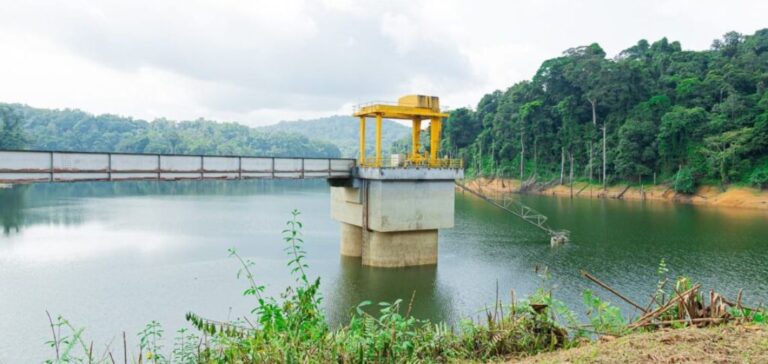Gabon is experiencing an energy crisis that is having a major impact on its capital, Libreville.
The Société d’Eau et d’Énergie du Gabon (SEEG) has been implementing rotating load shedding since September 4 to offset the production deficit and prevent the collapse of the power grid.
These planned three-hour power cuts occur several times a day, affecting Libreville residents regardless of zone or time of day.
The drop in production is mainly due to lower water levels at the Kinguélé-Tchimbélé dam, an essential infrastructure for Libreville’s electricity supply.
The dam, which accounts for almost half of the capital’s energy production, has a deficit of 60 megawatts.
SEEG had already warned in June of low water levels following a less generous rainy season than forecast.
This situation highlights the vulnerability of Libreville’s power system, which is largely dependent on water resources.
Pressure on infrastructure and financial challenges
In addition to the hydraulic problems, Libreville’s thermal power plants, which also supply a substantial proportion of the energy, are facing interruptions due to the unavailability of certain facilities.
These infrastructure challenges exacerbate supply difficulties, making power grid management increasingly complex.
This lack of continuous production capacity is putting increasing pressure on Gabon’s energy sector.
SEEG’s financial difficulties also complicate the management of this crisis.
In August, SEEG found itself under fire after a late payment of 15 billion CFA francs (23 million euros) to the British company Aggreko, a service provider operating thermal power plants in Gabon.
This tense situation prompted Aggreko to threaten to cease operations, which would have exacerbated the energy crisis in Libreville.
SEEG management reform and government intervention
As the situation worsened, the President of the transition, General Brice Oligui Nguema, placed SEEG under provisional administration at the end of August.
This followed revelations of internal financial embezzlement and irregularities in the meter recharging system.
These financial frauds jeopardize not only the company’s financial stability, but also the confidence of consumers and business partners.
The government is therefore seeking to restore order and transparency to the management of this key company.
Increased regulation of SEEG is intended to ensure better management of energy infrastructures and stabilize the power grid in a context of growing challenges.
The current crisis underlines the need to review maintenance and asset management policies to avoid future episodes of energy disruption.
Towards a more resilient energy strategy in Gabon
This energy crisis in Libreville illustrates the structural challenges facing Gabon.
Dependence on hydroelectricity and thermal power plants exposes the country to significant risks of disruption.
Upgrading infrastructures and diversifying energy supply sources are strategic priorities for strengthening the sector’s resilience.
By taking control of SEEG, the Gabonese authorities intend to establish more solid and efficient governance, capable of meeting the growing needs of the population and the economy.
Investment in more robust technologies and rigorous management of energy resources will be essential to guarantee security and stability of supply in the future.






















